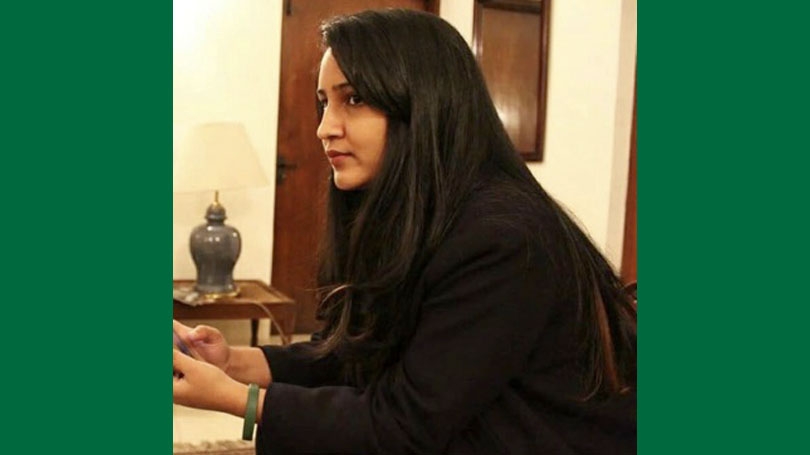
Radhika Moral, MALS '18, will begin a PhD at Brown in the Fall.
Radhika Moral is the daughter of academics and a native of Assam, a state in India’s Northeast situated along the final reach of the Brahmaputra River as it flows into the Indian Ocean. Two key presences in her early life shaped her professional trajectory: the river and her parents. Living by the Brahmaputra situated her among the life along its banks, inviting her to think deeply about the people who live in such settings.
Moral studied literature as an undergraduate at Lady Shri Ram College for Women in New Delhi, and came to Dartmouth to pursue a Masters in Cultural Studies. At Dartmouth, Moral studied the migrant bodies and affective lives of the Rohingya, a stateless group in Myanmar, as they arecaught in ethno-nationalist politics. Her fieldwork with Rohingya refugees in the Thai-Myanmar border drew both on anthropological observation and analyses of popular genealogies of the ethnic identity and contested status of Rohingyas.
Moral recalls the development of a unifying idea in her work: “As I examined ethnic diversity and religious pluralities in Myanmar, both already complicated by transnational borders, the anthropology of sovereignty became a pertinent issue.” Her thesis wove together many threads: the freedoms of marginal people, and what brings them recognition as ‘communities’ and ‘citizens,’ how these categories are defined differently in different spaces, and the precarity of movements by such marginal stateless peoples. Moral also published work in the MALS journal Clamantis and was a recipient of the Thesis Excellence Award in Cultural Studies.
Recalling her time in Hanover, Moral misses eating the bread from Molly’s, taking strolls around the Green, and formal classroom debates—as well as informal chats downtown after hours—with professors which yielded enduring insights. These mentorship moments are perhaps the most durable resources she took from Dartmouth to her career.
Moral moved from Dartmouth to a social justice think-tank in Boston, then to Brandeis University where she is a Teaching Fellow. She finds it particularly enriching in her current work to think together with students about topics such as kinship systems, food, place and space, and religion and nature. Moral traces a trajectory from her childhood experiences, through her research in Cultural Studies focusing on identity and shared patterns of life, to her current interest in unbounded terrain with intertwined geographies of river and borderland territory. Her fascination with the interconnection of everyday practices in generating a politics of place has led her to pursue a PhD in Anthropology, which she will begin this fall at Brown.
Moral was drawn to anthropology by the possibilities offered by the discipline to read and re-read rich zones such as river and borderland territories. The social and cultural dynamics of water and environment and human engagement interest her, therefore the river—as a specific site of profound anthropogenic activities which manifest in the lives of communities that settle around them—increasingly drives her research questions.
Moral encourages current and future Guarini School students to “be open-ended about what their graduate years and research may eventually yield.” She cannot overstate the importance of being a good listener; there is no better way to conduct research—with whatever method—than patiently listening, absorbing, and observing what others have to offer. She also advises graduate students to respect their own work as much as the primary readings, while maintaining enough levity to step back and laugh at yourself every now and then."